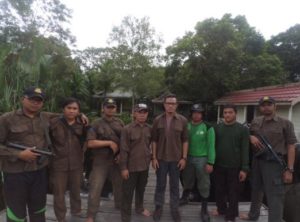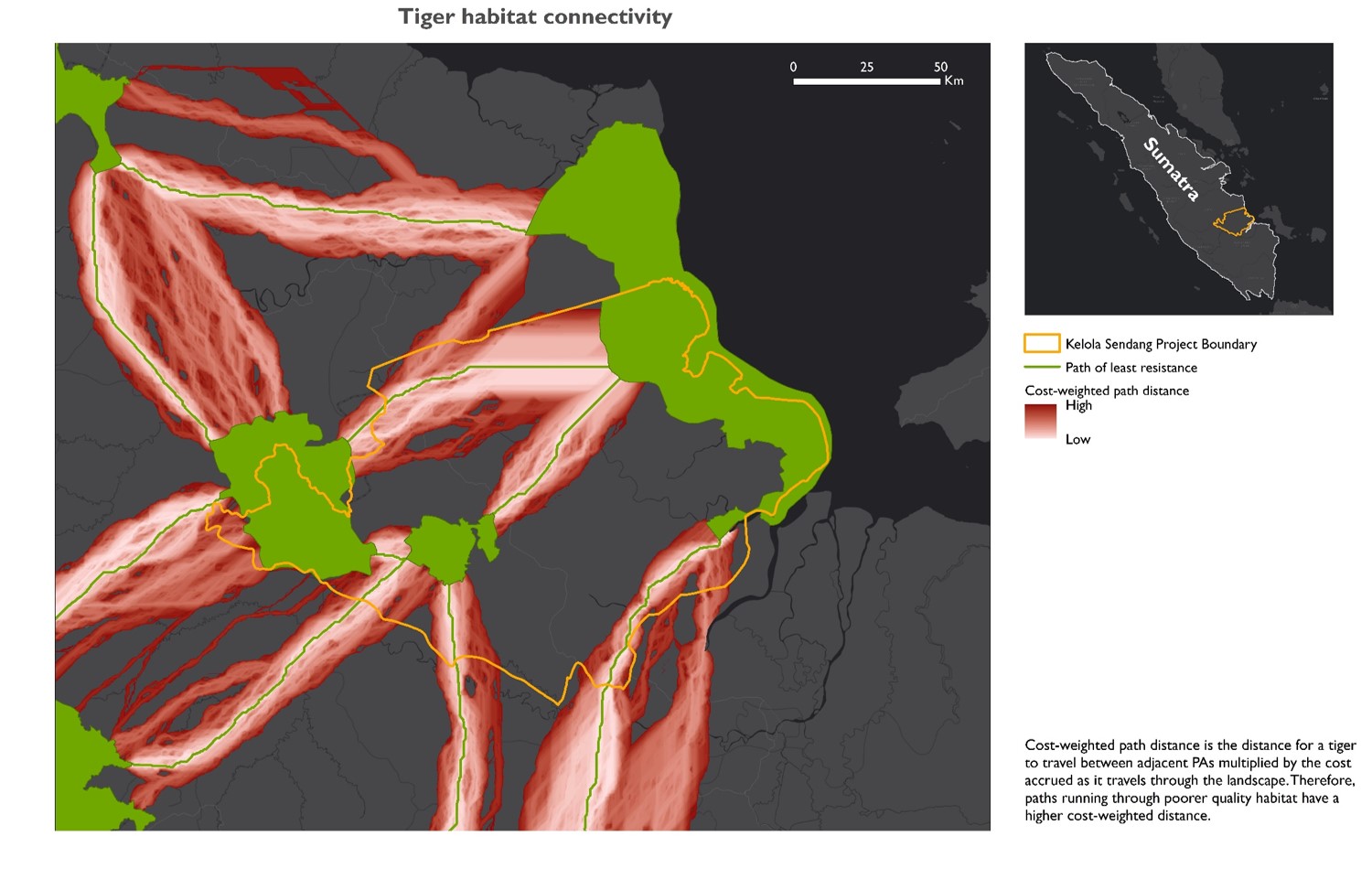The Zoological Society of London (ZSL) runs conservation programmes in over 50 countries, including Indonesia, where we work to protect the Sumatran tiger (Panthera tigris sumatrae) through species monitoring, anti-poaching programmes, and engagement with local communities and industry. We recently invited members of the Roundtable on Sustainable Palm Oil (RSPO) to ZSL London Zoo’s Tiger Territory exhibit to find out more about our work in the field.
Tigers in decline
Tigers (Panthera tigris) – classified as Endangered by the IUCN Red List of Threatened Species – face a growing number of threats, from deforestation and habitat loss to poaching. Originally found across much of Asia, tigers now inhabit less than 6% of their historic range, with a 42% decline since 2006. At least three subspecies are now extinct, with tiger populations disappearing from Vietnam, Cambodia and Lao in as little as the last five years, where once thousands roamed.
Of the remaining subspecies, the Critically Endangered Sumatran tiger is among the most vulnerable to extinction. Sumatra has one of the highest levels of deforestation in Indonesia, leading to highly fragmented forest patches that cannot support healthy tiger populations. This also increases the chances of human-wildlife conflict and makes the forest more accessible to poachers.
The Indonesian province of South Sumatra is home to the Sembilang section of the Berbak-Sembilang National Park on the east coast and the Dangku conservation complex in its centre – some of the few remaining tiger habitats. However, less than 30 tigers are estimated to be living in the landscape, with no more than 400 individuals left in the wild.
Our work in Indonesia
ZSL first started working with the palm oil industry in 2001, after a company contacted ZSL for advice on how to manage populations of Sumatran tigers found in concession sites around their plantations. Since then, we have been working on tiger habitat conservation in Indonesia through a variety of initiatives.

ZSL Indonesia’s Wildlife Crime Investigation Unit
According to a survey from TRAFFIC, the global wildlife trade monitoring network, poaching of tigers for the illegal wildlife trade is responsible for over 78% of Sumatran tiger deaths. ZSL has set up a Wildlife Crime Investigation Unit to tackle illegal wildlife trafficking. Together with our Wildlife Conflict and Response Teams, our teams are working to address key threats to tigers, including poaching, illegal trading and human-tiger conflicts.
Through a collaboration with the Indonesia Ministry of Environment and Forestry we have also set up Tiger Protection and Patrol Units to tackle tiger and prey poaching. The patrol teams make use of the SMART approach– developed by ZSL and other leading conservation organisations – to identify and map threats such as poaching or disease, and make patrols more effective.
KELOLA Sendang
In South Sumatra, we are working to increase connectivity between crucial tiger habitats, now too small to support viable populations on their own. Part of a much larger landscape level project, KELOLA Sendang aims to facilitate and support government, the private sector and local communities to pilot a sustainable landscape management partnership model, potentially replicable across other areas in Indonesia and beyond.

ZSL’s SPOTT initiative aims to assess key palm oil and timber and pulp producers, some of which operating in the Sembilang-Dangku landscape on their commitments to environmental and social best practice. Expansion of oil palm and pulpwood plantations was responsible for nearly two-thirds of the destruction of tiger habitat in Sumatra from 2009 to 2011, so engaging with these companies is crucial to ensure populations are protected.

Petra Meekers speaking at ZSL London Zoo
Following the RSPO European meeting in London, the SPOTT team recently invited delegates to an evening reception at our Tiger Territory exhibit at ZSL London Zoo. The event highlighted the importance of our conservation work with tigers and the palm oil industry, including a corporate perspective from Petra Meekers, Director of CSR and Sustainable Development for Musim Mas Group – a key palm oil producer assessed on SPOTT and operating in the KELOLA Sendang landscape. Petra reflected on the collaborative approach between ZSL and Musim Mas, emphasising the necessity of close consultation with multiple stakeholders.
On behalf of ZSL, we would like to thank our speakers and everyone who attended, and we look forward to further collaboration towards a sustainable industry – one that benefits people and assures a future for tigers and other animals.
